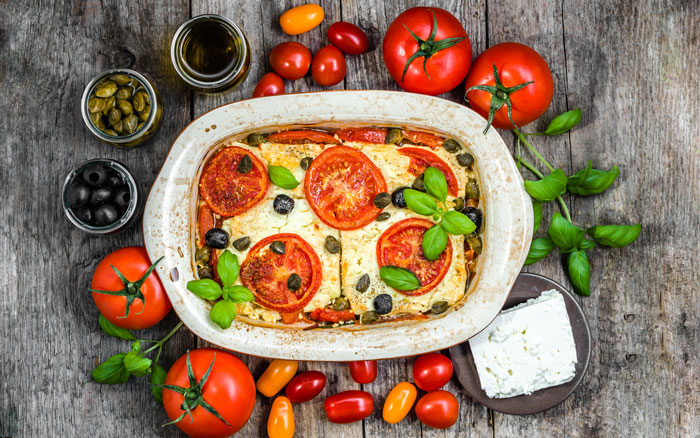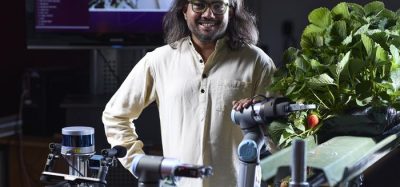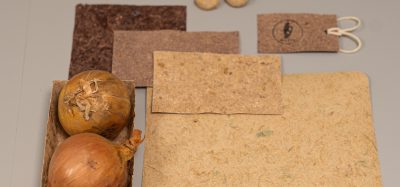Food – a lifelong relationship
- Like
- Digg
- Del
- Tumblr
- VKontakte
- Buffer
- Love This
- Odnoklassniki
- Meneame
- Blogger
- Amazon
- Yahoo Mail
- Gmail
- AOL
- Newsvine
- HackerNews
- Evernote
- MySpace
- Mail.ru
- Viadeo
- Line
- Comments
- Yummly
- SMS
- Viber
- Telegram
- Subscribe
- Skype
- Facebook Messenger
- Kakao
- LiveJournal
- Yammer
- Edgar
- Fintel
- Mix
- Instapaper
- Copy Link
Posted: 29 August 2017 | Alice Fotheringham | Nutritional Therapist and Co-founder | Piccolo | No comments yet
Many of our lifelong eating behaviours develop during the first few years of childhood. It is through actual experiences with food as well as watching the eating behaviours of others that children learn about what they want, and how much they want to eat. Alice Fotheringham, registered Nutritional Therapist & Head of Nutrition & Product Development at Piccolo, explains more.


FUSS BE GONE: Mediterranean ingredients hold the key to a lifelong love of food
WEANING is very much about introducing your baby to a wide variety of tastes and textures in the first few months. They are still getting the majority of their nutrients from their breast or formula milk in the first year, so it is less important to worry about quantity or specific nutrients at this stage, and more about offering your baby a wide variety of foods.
A lot of learning about food happens during the transition from milk to solid foods. These early experiences are influenced by genetics as well as our unlearned preferences for sweet and salty tastes, and initially rejecting sour or bitter flavours.
However, the area where parents can have the most influence on their children’s feeding habits can be seen in the research investigating how children choose what they like and dislike based on how familiar a food is. There is a direct link between exposure to a food – the frequency with which you offer a food – and a child’s food preferences. Often parents will only offer a food two or three times before deciding the child doesn’t like it. Repeated exposure in the first few years is important, as it can take up to 12 times for a new food to be accepted.
Given this assumption, we should consider how best we can help children to appreciate the true taste of vegetables, fruit, grains, pulses, good quality fats and meats. The Mediterranean approach to eating – which is at the core of Piccolo – isn’t about rules, but about balance, variety and the love of food. We aim to ensure we can get the best possible ingredient, and search extensively to make sure we are using top-quality foods and building sustainable livelihoods for our farmers in the process.
It started with a seed…
Piccolo ingredients are planted and nurtured in independent family farms from across the Mediterranean, from countries such as Spain and Italy, with a few of our more tropical fruits and spices sourced from far-flung corners of the world. At Piccolo, independent family farms are at the heart of our sourcing decisions. We know our farmers and their stories, and our sourcing ethics are rooted in our founder and her family’s background in food. It is an integral part of the Piccolo journey. We work closely with the farmers to help ensure they grow produce that’s bursting with flavour for our products. It’s at the core of our promise to make sure we are getting the best possible ingredients for our range.
Mediterranean ingredients
The Mediterranean region is full of incredible, high-quality ingredients, and Cat and the team have travelled mainly in Southern Europe to find the best. Across the Alps – from the apple orchards in Campania, Italy, to picking zucchini in Provence, France – they meet with the families and friends involved in the growing of the ingredients that end up in Piccolo’s recipes.
Ingredients
New product development at Piccolo is led by our in-house nutritional therapist and nutritional chef Alice Fotheringham, who also runs the sister charity of Piccolo, the Food Education Foundation. Every ingredient in a Piccolo pouch is used for a reason. Nothing other than fruit, vegetables, grains, olive oil, meat and herbs and spices are added to the pouches. Each ingredient is used to provide a unique flavour and particular element to the recipes. From beetroot with its bright colours and delicious distinctive taste, to the introduction of green leafy vegetables like kale and spinach, and the exciting launch of ingredients such as celeriac, every vegetable adds something unique. Innovation in packaging as well as ingredients is a key component to what we do in the NPD team at Piccolo. We are in the process of launching new, 100% organic and delicious recipes inspired by our Mediterranean heritage in new retailers including Morrisons, Boots, Asda and Waitrose.
The key message is that variety is key during those first few months of introducing babies to solid foods. This is especially true for flavours such as bitter and sour. It is also important to remember not to give up. Sometimes babies need to taste flavours a number of times before they get used to them.
ALICE FOTHERINGHAM is a registered nutritional therapist. A co-founder of Piccolo, she has been head of nutrition and product development for 3 years. Piccolo draws inspiration from the Mediterranean approach to health and wellbeing, promoting a balance in nutrition, flavour, family and community. Prior to Piccolo she served as a director of The Food Education Foundation for 3 years.
Issue
Related topics
Flavours & colours, New product development (NPD), Technology & Innovation








